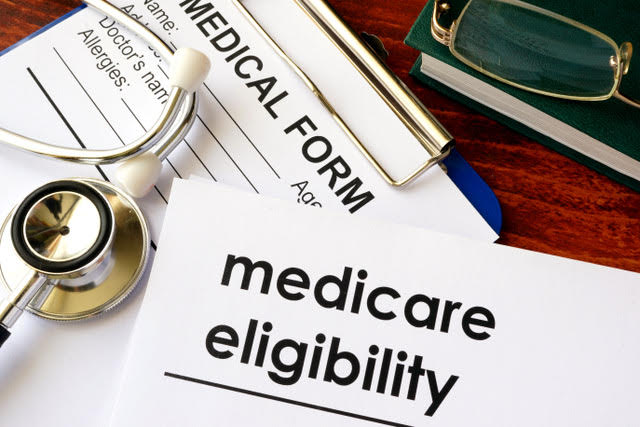New to Medicare?
 Are you turning 65 or getting ready to retire and lose employer group coverage? It is wise to start learning about Medicare even if you aren’t planning on retiring at 65. Medicare has guidelines and timeframes that are subject to change and if you don’t enroll when you are first eligible, there could be late enrollment penalties. A good rule of thumb is to contact us or Medicare 4-6 months prior to turning 65, even if you or a spouse are still working. You may also be new to Medicare due to being deemed disabled through Social Security. Typically, there is a 24 month waiting period before you qualify for Medicare Part B.
Are you turning 65 or getting ready to retire and lose employer group coverage? It is wise to start learning about Medicare even if you aren’t planning on retiring at 65. Medicare has guidelines and timeframes that are subject to change and if you don’t enroll when you are first eligible, there could be late enrollment penalties. A good rule of thumb is to contact us or Medicare 4-6 months prior to turning 65, even if you or a spouse are still working. You may also be new to Medicare due to being deemed disabled through Social Security. Typically, there is a 24 month waiting period before you qualify for Medicare Part B.
When am I enrolled in Medicare?
If you are collecting Social Security when you turn 65, you will automatically be enrolled in Medicare Parts A & B. If you are not collecting Social Security when you turn 65, you will not automatically be enrolled, so if you want to be enrolled in Medicare, you will have to contact Social Security approximately three months before you turn 65.
What if I am still working?
If you are still working when you turn 65 and you are covered by a group health insurance plan that insures more than 20 people, you should be able to delay enrolling in Medicare without a penalty. If you are still working when you turn 65 and you are covered by a group health insurance plan that insures less than 20 people, you should not delay in enrolling in Medicare Parts A & B, because you will most likely be subject to a penalty. Everyone’s situation may be different, so we make sure to get you in contact with the correct departments to avoid penalties and maximize your benefits. Once you are enrolled in Medicare, you will have coverage for Parts A & B, referred to as Original Medicare.
What is Original Medicare?
Original Medicare has two parts:
Medicare Part A (Hospital Insurance) helps cover:
- Inpatient care in hospitals
- Skilled nursing facility care
- Hospice care
Medicare Part B (Medical Insurance) helps cover:
- Services from doctors and other health care providers
- Outpatient care
- Durable medical equipment
- Preventive services
Some of the items and services that Original Medicare doesn’t cover include:
✘ Routine eye examinations related to prescribing glasses.
✘ Hearing aids and exams for fitting them.
✘ Most dental care.
✘ Dentures.
✘ Acupuncture.
✘ Routine podiatry.
✘ Prescription drugs.
✘ Long-term care.
How much does Original Medicare coverage cost?
Medicare Part A:
Premium – Most people do not pay a monthly premium for it because they or their spouse paid into it while they worked at least 10 years throughout their lifetime.
Services – There are deductibles and copays for Medicare Part A services.
Medicare Part B:
Premium – There is a standard monthly premium, but some people may pay more or less, depending on their income.
Services – There is an annual deductible, then there is a 20% coinsurance for all covered services after the deductible has been met.
Original Medicare was not intended to cover everything. It has premiums, deductibles, co-insurance costs, and no out-of-pocket maximum. It does not cover routine vision, hearing, dental, or prescription drugs. Most people want additional coverage.
The following parts are available through private insurance companies:
- Medicare Part C (Combines Part A & Part B & most plans include Part D)
- Medicare Part D (Prescription Drug)
- Medicare Supplement
These plans may have premiums, copays and/or co-insurance, and deductibles. Medicare Part C plans have a maximum out-of-pocket limit and may cover some services that Original Medicare does not, such as routine vision, hearing, prescription drugs, and/or dental. Medicare Part D plans are required to offer at least two drugs that treat every Medicare-covered condition. Medicare Supplement plans may pay some or all of the Original Medicare covered deductibles, copays, and coinsurance.
We offer all three plan types and are contracted with almost all of the major carriers, so we can work with you to find a plan that fits your needs. When it comes to Medicare, you have choices, and we are here to help.
Contact us today.
Learn more here:
We do not offer every plan available in your area. Any information we provide is limited to those plans we do offer in your area. Please contact Medicare.gov or 1-800-MEDICARE to get information on all of your options.
